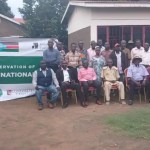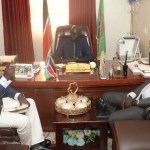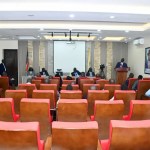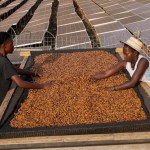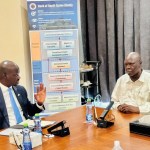(Panrieng) – The government of Ruweng Administrative Area (RAA) has approved its budget for the 2025–2026 financial year following a high level Council of Ministers meeting chaired by Chief Administrator Stephano Wieu de Mialek.
The meeting held on Friday, 27 June 2025 brought together newly appointed ministers to discuss the region’s development priorities, with a major focus on the fiscal framework for the year ahead. The Honourable Minister of Finance and Planning presented the draft budget to the council, which was carefully reviewed and later unanimously endorsed.
This approval represents a key step towards supporting development and enhancing essential services across Ruweng, a region that plays a strategic role in South Sudan’s oil-producing belt.
The new budget, which is scheduled to come into effect on 1 July 2025, gives particular attention to core sectors that directly affect people’s lives. These include physical infrastructure, healthcare, agriculture, and other basic services aimed at improving community well-being and promoting resilience in a region that has faced past challenges due to conflict and underdevelopment.
The RAA government has not disclosed the full monetary value of the approved budget. However, officials say the fiscal plan reflects the leadership’s commitment to investing in the welfare of its population and boosting service delivery, especially in rural areas.
The meeting also signalled the start of a new working relationship among the recently appointed ministers, as the Chief Administrator seeks to create a more coordinated and results-oriented governance structure.
Observers say the budget’s approval is likely to increase public expectations for more visible development outcomes in the region. The decision aligns with a wider trend in South Sudan’s administrative areas, where there is increasing focus on decentralised planning and delivery of basic services as part of post-conflict recovery and local governance reform.
The RAA, which borders Unity State and includes major oilfields, continues to be seen as both economically important and politically sensitive.
Improved management of public finances is expected to support peace and stability by addressing local grievances and boosting opportunities for youth and vulnerable communities.
Officials from the Press Unit described the session as constructive and timely.










